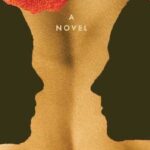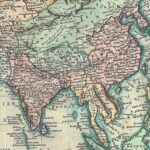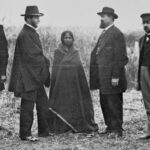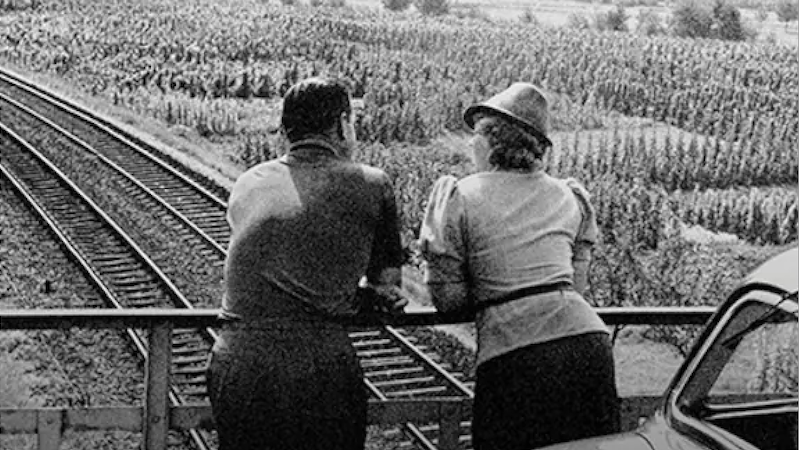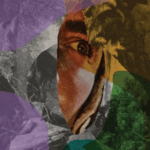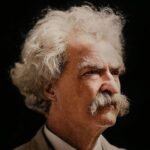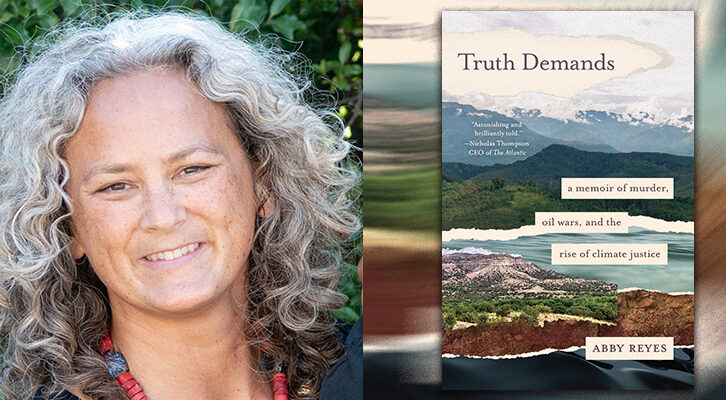“I Did Not Get Anywhere Until I Became a True Literary Citizen.” Courtney Maum on Making a Writing Career
The Author of The Year of the Horses Talks to Mira Ptacin
I remember the first time I met Courtney Maum. It was nearly ten years ago, a spring or maybe summer day in Brooklyn, Carroll Gardens. We were both in our twenties, no books published yet, just a few free essays here and there, just starting our writing careers with the fierce intensity of Jack Russell terriers. We sat and picked at some pizza, wallowing in our crapulence of the uphill battle of getting our written words noticed. We were there to support one another; it was the beginning of a writerly friendship, a handshake of camaraderie. Looking back on it, I find that beginning battle cute, the same way I feel when I see my own children trying something new, frustratedly. We were so fresh, so determined, so energetic, unaware of what would actually happen.
It turns out, years later, we’re both doing alright. But the hard work was required. Still is. And there’s something that hasn’t changed with Courtney in her years of success, which is her signature vibrancy; her genres are wide-ranging—from historical fiction to novels to publishing guidebooks to humor and now memoir—and she constantly remains fine and exuberant and sharp and funny and brave as when we first met. I recently spoke with her some of my favorite topics: loving and leaving New York, the artistic process, life balance, living in a rural environment, as well as her newest memoir, The Year of The Horses.
*
Mira Ptacin: You have a lot going on: parenting, horses, an artist spouse, teaching, book tours, an artist residency to run. Can you tell us about your writing routine? How do you stick with it?
Courtney Maum: In the past, I’ve managed to have a writing project to work on while I’m promoting a new book, but that just isn’t possible this year; I have too much going on and I’m also—frankly—tired. So I’m thinking a lot about something new. Taking notes, writing possible names for characters on receipts, slowly letting a story take form in my head which I will explore when I’m done touring for my memoir.
Generally, the way I manage things is that I reserve Mondays and Tuesdays exclusively for my own creative writing, then Wednesdays through Fridays for everything else. And I don’t work on the weekends, I’m religious about that. I need the weekend to recharge so that I can bring everything I have to the page on Monday. Additionally, I don’t really work after lunch—I go to the barn around 1 pm until it’s time to get my daughter after school. I know that sounds incredibly luxurious and indulgent, but I’ve tracked the way I work, and I’m useless after 1 pm, usually spending that time on social media feeling things I shouldn’t. So now I just work incredibly hard in the mornings and then do something nice for my head and heart in the afternoon with the little time I have before I go into “mom” mode again!
MP: What do you recall about first starting out as a professional writer? What kept you going, and what do you remember about gaining momentum?
CM: What I recall—and know—is that I did not get anywhere until I became a true literary citizen. What that meant for me (an outsider with no MFA, no degree in English, and no writing friends until I’d say 2010) was that I had to start actively participating—physically and fiscally—in the community that I wanted to support my work. Buying literary magazines instead of just guessing what was in them (and submitting the absolute wrong kind of material); going to readings; buying books in independent bookstores; making friends with editors, agents, and other writers.
Like pretty much every business, publishing is a relationship business. You simply have to form honest and meaningful relationships with other writers and publishing gatekeepers or you will not get ahead. You, Mira, were actually one of the first people to give me a chance—I think that my participation in your Freerange reading series in New York (with Deb Olin Unferth! Swoon!) was my first-ever time at the mic.
To really make it in this industry, you just have to keep going.MP: When did you feel like you had “made it”? What do you know differently now about the publishing world?
CM: James Baldwin has this incredible quote about writing, that it doesn’t take talent, it takes endurance. And that’s it—that’s the secret of how to stay afloat. To really make it in this industry, you just have to keep going. Despite the rejections, the rollercoasting sales, the highs, the lows, the times when it feels your book is “the” book everyone is talking about and the times when nobody is talking about your work at all: it all lands you in the same place. You have to go back to the desk no matter what, you have to keep telling stories. No matter what.
MP: What do you think is required of writers?
CM: Far too much! That writers should be involved in the promotion of their work to some extent seems natural—after all, we want to form connections with the readers who are going to buy our books and with the outlets that they are going to buy our books from. Today, it’s not only hoped for but almost a condition of getting a book deal that you will become a one-person branding operation for your book, pulling a podcast out of your back pocket, a newsletter, blue check verified social media accounts with gazillions of followers, a TikTok dance account, maybe a cooking show, the list goes on. Plus you need to do event management and a lot of your own publicity outreach (shout out to my in-house publicists, though, who are total bosses at their jobs and very good people).
Nevertheless, it’s far too much, the demands and expectations put upon us authors, and it isn’t fair, financially: it’s not like we get a bigger advance to cover all of the non-writing time we have to put into promotion; if anything, we get less money now because publishers seem to assume that we are making money as “influencers” or I don’t know what. I have to admit—I love this industry, I’m a ride or die kind of publishing groupie, but we writers need a freaking rest. I’d love to see a world in which publishing supports our actual writing time more than they do our self-promotion.
MP: Why live in the woods?
CM: I tried New York City for a year and a half, and it nearly broke me. While I understand how enriching and necessary it can be for many people to live around people who are doing the same thing as them, I actually work better when I’m kind of a lone wolf, living alongside people who are doing wildly different things than I do, things that I could never do. I find this kind of interdisciplinary trespassing inspirational—it’s why I formed my nonprofit learning collaborative, The Cabins, to help artists get out of their own silos. Also, I suffer from chronic insomnia and anxiety, so the restorative, peaceful nature of nature itself is deeply healing to me—it’s my charging station.
I’d love to see a world in which publishing supports our actual writing time more than they do our self-promotion.MP: Without the “stealth therapy” available through horses, what do you imagine your life would be like right now, and how conscious are you of your current act of healing? Meaning, do you recognize it daily, and make time for it like you do with writing? Or is it a constant that you’ve gotten used to?
CM: If I hadn’t turned to horses, I think I might be divorced or at least separated from my spouse. I think my anxiety and insomnia would have completely consumed me—in reality, it was eating me alive. I dropped so much weight when I was depressed, I developed IBS, I had a mouth full of canker sores from elevated cortisol, I had sunken eye sockets, I looked like the grim reaper. The horses never lied to me about that. The first time I encountered horses as an adult, they pinned their ears back at me: a clear sign that they were negatively affected by the energy I was carrying.
So now, even when I am not riding or near horses, I analyze my energetic state with the horses in mind. I feel stressed: am I so stressed that I would make a horse pin its ears at me, and if so, what can I do (breathe deeply, get heavy in my body, roll my shoulders, smile, laugh, conjure up the way a horse smells) to detoxify my energy?
MP: You’ve written humor, fiction, publishing guides. What was the process of writing a memoir like? How was it different, and would you do it again?
CM: The actual act of writing memoir, for me, didn’t differ all that much from fiction. I still had to work on character development and plot, momentum, structure, figuring out how in the world to write something that other people would care about—all of these craft concerns were there for memoir, too. The big difference was during pre-publication. Do I share this with my family before the book comes out? Do I share it with everyone in it? Have I represented my memories accurately? Am I right? Is there such a thing as being right? These questions were mostly new to me, scary, uncomfortable. It takes nerves of steel to put a memoir out into the world.
MP: How do you keep writing when the world is so bad?
CM: Well, the world sure as hell isn’t going to get better if I stop writing! Writing is how I make sense of the world, relate to other people; it is how I express anger, it is how I protest. I’m fortunate in that being a writer allows me to express my feminism (and other states of being) with a world beyond the small town that I live in. Additionally, especially with this book, I think that by sharing my own story, there is a small chance that someone might read it and feel a little better about what they are going through personally, and that communion—of bringing an improved emotional state to someone else through art—I think that has a ripple effect. Art has a lot of power.
I actually work better when I’m kind of a lone wolf, living alongside people who are doing wildly different things than I do, things that I could never do.MP: In addition to being the mother of a human child, I know you’ve recently become a mother to a rescue horse named Abuelita. Can you tell me a little about it, and how she’s influenced your life?
CML I’d love to! I met her this fall—she belonged to a man with extreme substance abuse issues and he was failing her in every way: she lacked food, water, shelter, care, and tenderness of any sort. She’s a grouchy senior chestnut mare thoroughbred—this is code, in the horse world, for a kind of demon horse. Our story together isn’t like a Disney narrative—she is a really difficult horse, totally unpredictable and prone to violence, but to me, it is a feminist story through and through. What I was watching this man do to his horses, and to Abuelita in particular, I just felt like, not on my watch, bucko. Not in 2021. Not to a female horse.
As you know, it’s so easy to feel helpless right now. Like, I can recycle until the cows come home, donate and write letters and protest, and somehow, nothing seems to change. But something changed when I rescued Abuelita. I got hundreds of pounds back on her, she has food, friends, she’s happy, her life is no longer in danger, nor is her dignity. It is a small change in the grand scheme of things, but it feels big to me.
MP: What’s your next project?
CM: My next project is to enjoy the hell out of my summer. I want to read in the hammock, make sun tea, play with my daughter, try to bond with my rescue horse as she comes back slowly from her trauma. I want to rest and relax and hopefully continue connecting with people who have enjoyed The Year of the Horses. If you’ll excuse the pun, I just want to enjoy the ride!



